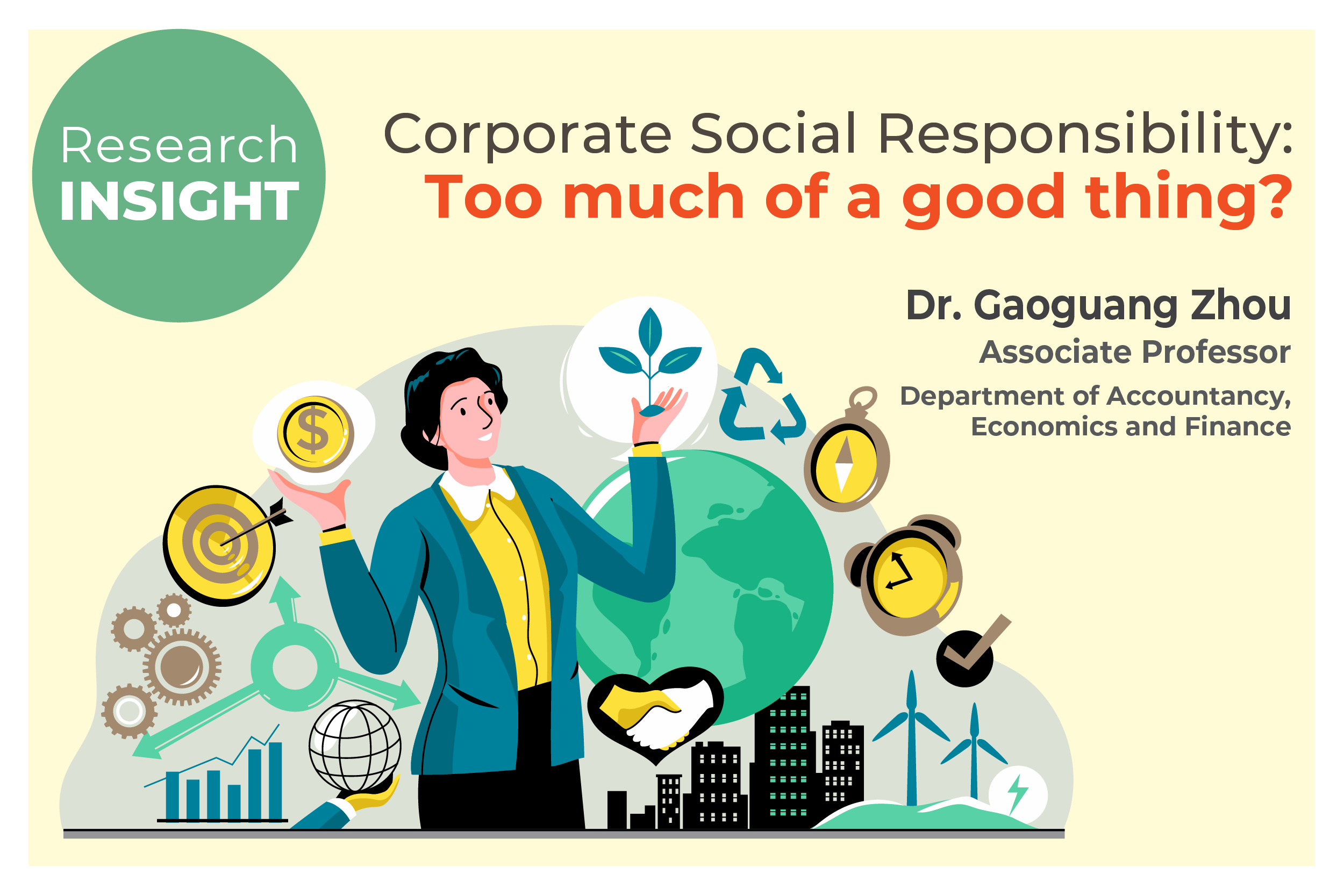School of business - research
Corporate Social Responsibilities: Too much of a good thing?


Doing well by doing good is all the rage as companies turn their back on the “Milton Friedman Doctrine” – that a company has no social responsibility other than increasing profits for shareholders – to embrace the tenets of Corporate Social Responsibility (“CSR”). Fortune Global 500 firms are spending more than $19.9 billion annually in CSR activities i.e. “actions that appear to further some social good beyond the interests of the firm and that which is required by law” as investors, banks, employees and even customers take CSR into account when deciding whether to engage with a firm. Given the high profile of CSR activities, it’s no surprise that CEOs are keen to be heavily involved – and invest heavily– in CSR activities. But are they doing it to benefit their firm or to selfishly enhance their personal profile? Can there be too much of a good thing and what role should boards of directors play when it comes to dealing with the “selflessness’ of CEOs? A recent paper explores how “Talented Inside directors (TIDs)” can impact the Good Samaritan instincts of CEOs keen to fund – very publicly – their favourite causes.
Defined as executives who sits on at least another corporate board besides that of their company, TIDs, like most inside directors, tend to be aligned with their CEOs – after all, they want to keep their job – which is why regulators bent on improving corporate governance have pushed firms to appoint more independent directors. However, it has been shown that TIDs, unlike other inside directors, may actually help improve corporate governance. In addition to signal their ability to the labour market, they possess informational advantage and can afford to be relatively independent, especially when there is a possibility that they might be chosen to replace the boss. Fulfilling both a monitoring and an advising function, can a TID restrains the “generosity” of her CEO while still ensuring that her firm gets the benefits associated with investing in a CSR programme?
Findings from a sample of 17,668 firm-year observations from U.S. firms and CSR ratings show that TIDs do indeed lower excessive CSR activities (as measured by the residual value of estimated CSR). Interestingly, this effect is more pronounced when TIDs are considered more competent – such as TIDs who are Chief Financial Officer, Chief Operating Officer or part of their firm’s succession plan – or more motivated to be promoted to CEO (such as short-tenured or relatively younger TIDs). It seems CEOs forced to look back over their shoulders at ambitious TIDs are more modest about their CSR ambitions. Findings also indicate that TIDs can actually make CSR investments more valuable, thus helping both their CEO and their shareholders.
To paraphrase Adam Smith, it is not from the benevolence of CEOs or TIDs that we expect a better world, but from their regard to their own interest.
Reference:
1 "Talented inside directors and corporate social responsibility: A tale of two roles"